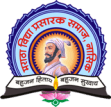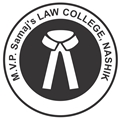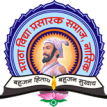Moot Court is a mock court at which law students argue imaginary cases for practice. It is a compulsory subject in the Final semester of the LL.B. & B.A.LL.B. course. The competition of Moot Court is also conducted at the college level for all students of LL.B. and B.A.LL.B. Its object is to impart and develop practical knowledge of drafting & pleading among the students. In the moot court, an artificial problem is given to the students. Students have to prepare their written memorials and arguments and present it before an expert. The arguments here are mostly on law points because facts are imaginary.
Importance of Moot Court:
Mooting is one of the best ways to develop one’s confidence, writing, speaking skills and research acumen. Participating in moot courts is not just great for budding advocates but also for future Judges and arbitrators. It gives students a chance to network and work with their future competition. It helps students to understand legal issues and to analyse legal topics and its research. Students learn to work in teams and learn from their teammates. They can develop their advocacy and legal skills, which improves their confidence. Mooting is intellectually rewarding and stimulating for budding lawyers.
STAGES OF MOOT COURT
Formulation of the problem:
It is the first stage where the problem is generally taken from the journals i.e. the decided cases by the High Court or the Supreme Court. Hypothetical problems may also be taken for moot court.
Participation of Students:
The interested student registers their names. Then teams are prepared. And a case is allotted to them. Student-Advocate has to study the case, conduct research and prepare a memorial.
Written Memorials:
The Student-advocates have to prepare memorials for both sides of the case. This is done for students to develop their thinking process. For a good quality memorial, sessions of collective discussions and research work is done by the teams.
Presentation of the Case
This is the most important stage of the moot court. Mooters have to be properly dressed. They have to follow the court decorum. Both Student-advocates argue their cases one after another.
Questions by Judge:
At the conclusion of both arguments, the presiding judge asks the general questions to the student-advocates on the point of law.
Recommendations by the judge:
The judge, who is either a law faculty or an expert, guides the mooters as to their performance. Judge also suggests corrections to them for future performance.


